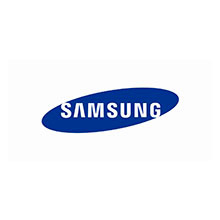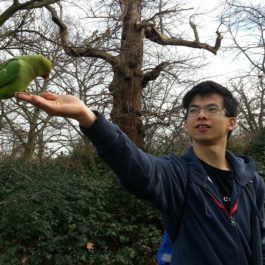Samsung Cambridge Solution Centre (SCSC)
Chances are that least one of the WiFi or Bluetooth devices you own will have some hardware or software designed by a member of SCSC. Samsung Cambridge Solution Centre (SCSC) Ltd
Our Scholarships
Placement Location
Cambridge
Type of Placements Offered
• Summer placements • 12-month placements • 6-month MEng placements
Restrictions/Notes
2024/25 Scholarships
We are not offering any new scholarships this year
Who we are and what we do

Samsung Cambridge Solution Centre (SCSC) is part of System LSI within Samsung Electronics, which is one of the world’s largest ASIC (i.e. silicon chip) design and manufacturing businesses. Here in Cambridge we do wireless connectivity (Wireless LAN and Bluetooth) research and development.
We employ about 150 people at our offices here, most of whom are engineers working on either digital hardware or software development and test. As a research site we’re involved in defining and then implementing and verifying new wireless IP. Some of our staff work within industry bodies (e.g. IEEE, WiFi Alliance, or the Bluetooth SIG) on next generation standards, while others architect and then design our own wireless products. We develop prototype systems to test our IP, and collaborate with other groups inside System LSI (Gyeonggi, Korea and San Diego, CA) to create platforms for our end customers, who are equipment manufacturers (like Samsung Mobile).

We have some of the most experienced wireless ASIC design engineers in the UK. Chances are that least one of the WiFi or Bluetooth devices you own will have some hardware or software designed by a member of SCSC.
Why come to Samsung Cambridge?
- Mobile wireless technology is an exciting area to work in. We’re designing products that will differentiate future mobile devices by reducing cost and power, as well as increasing speed, and adding new features like ranging and direction finding.
- Being part of System LSI also means that we work closely with application processor, cellular modem (LTE), GPS, and audio teams, giving you exposure to a very wide segment of the silicon design industry.
- And unlike other semiconductor companies, Samsung Electronics is vertically integrated from the foundry to the equipment manufacturer. That means we often work on advanced, limited availability, process nodes and on early prototype products.
What you could be doing during your work placement
We are currently looking for students to be placed into either our Radio Systems or WLAN firmware teams. In both cases, projects would usually involve developing or testing a new technology in a design lab environment.
Students would be placed under the guidance of a senior engineer, but we would expect them to be capable of organising their own work, and presenting their results to the group. Examples of current projects are:
- Design a system for evaluating the impact of multi-path fading for an OFDM receiver
- Develop an algorithm for detecting angle-of-arrival using a switched antenna array
- Evaluate 802.11 rate adaptation in different noise environments
We would expect students to:
- Have some understanding of communications theory
- Have experience writing software (C, Python or Perl)
- Have good organisational and communication skills
- Ideally have some system modelling experience (e.g. MATLAB, System C) or lab experience.
Meet one of our Scholars

Name: Magson
Sponsor: Samsung Cambridge Solution Centre (SCSC)
University: Imperial College London
Degree Course: MEng Electronic and Information Engineering
What appeals to me about Electronics
Electronics has applications in almost everything we do in the 21st century. It combines the fields of maths, science and computing to enrich the lives of millions of people.
Why I wanted a scholarship with Samsung
Samsung is one of the most innovative companies in the world today. Samsung Cambridge develops Wi-Fi and Bluetooth technologies requiring application of knowledge in digital electronics, signal processing and communications; these were subjects that I was particularly interested in. An internship at Samsung Cambridge was an opportunity for me to learn from engineers in the industry and apply the theoretical knowledge acquired from my first year at university.
My summer placement work
I made a Wi-Fi traffic simulator using the Python programming language based on the industry standard protocols. I used it to model different hardware configurations to see how they would affect the throughput of different packet types. In doing so, I have learnt how signal processing is used to provide a reliable service and the mechanisms to ensure fair bandwidth usage in wireless communications. I also built a number of software tools, including one to aid in the identification of throughput bottlenecks from data captured in the lab. I gained an understanding of the contents of Wi-Fi packets and helped to interpret a number of test results for a product under development at the time. Towards the end of my internship I presented the software tools I had developed to a group of engineers which helped to improve my communication skills.
Outside of work
I enjoy playing badminton, playing the flute and folding origami. I had a lot of fun playing at the Samsung badminton club and getting to know the kind and genuine people at Samsung Cambridge.